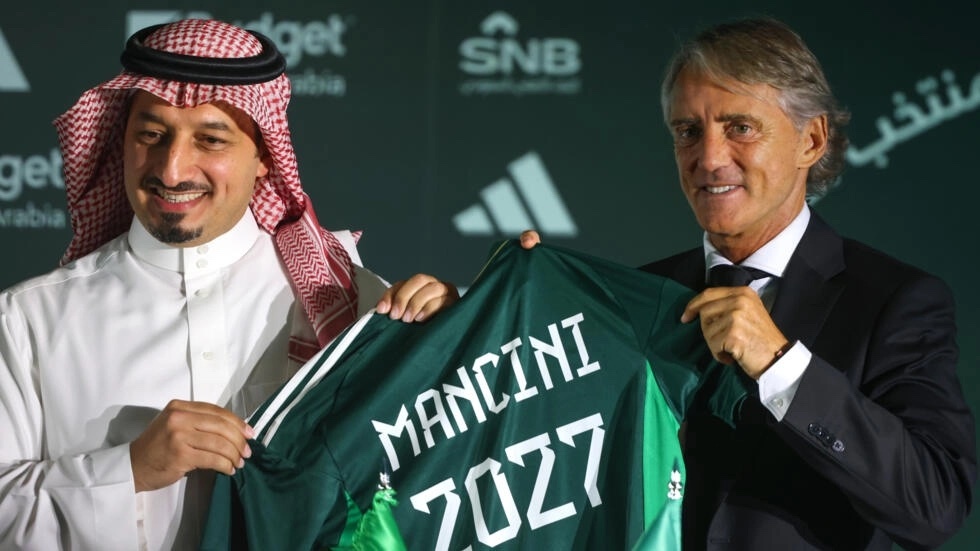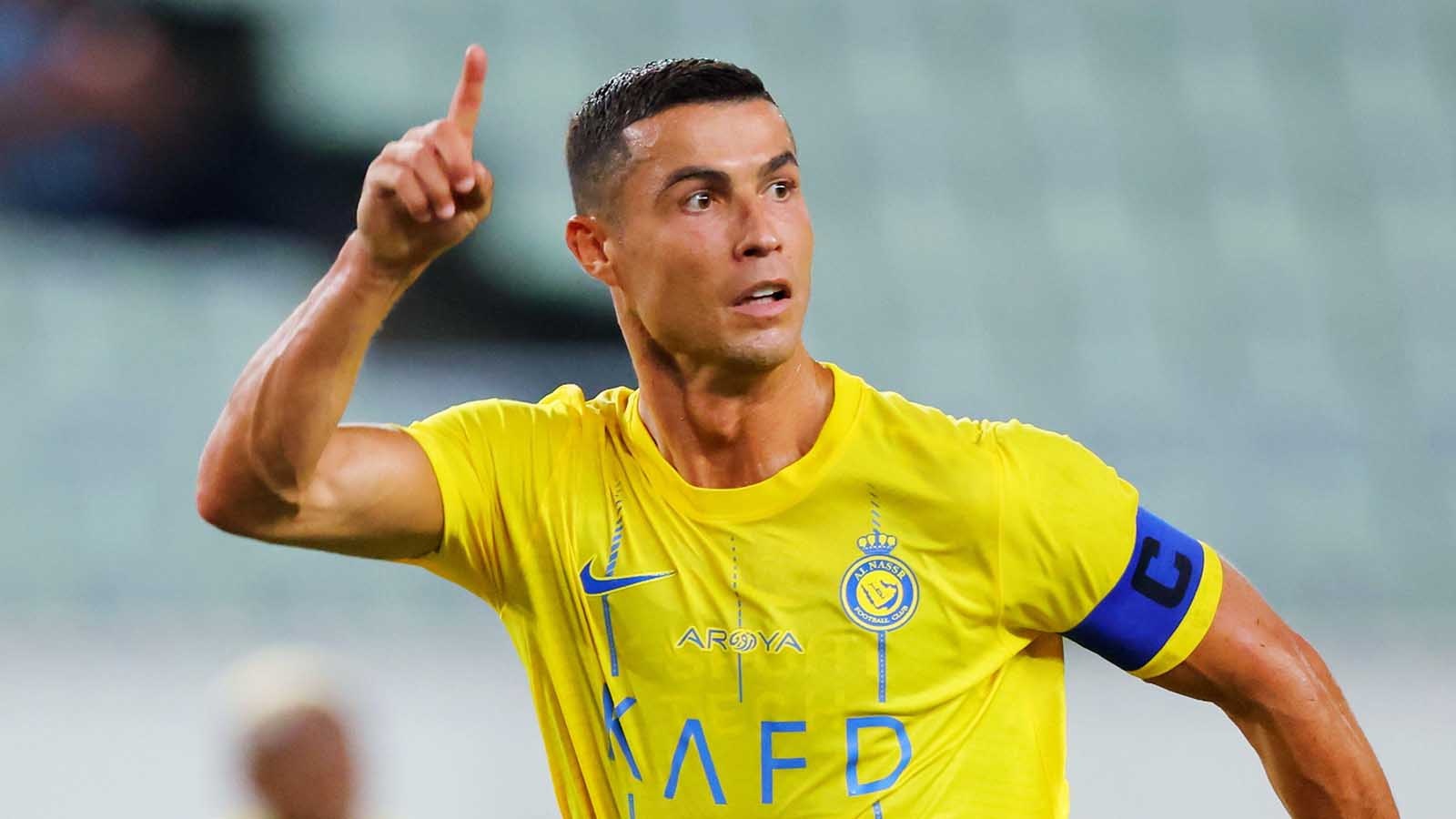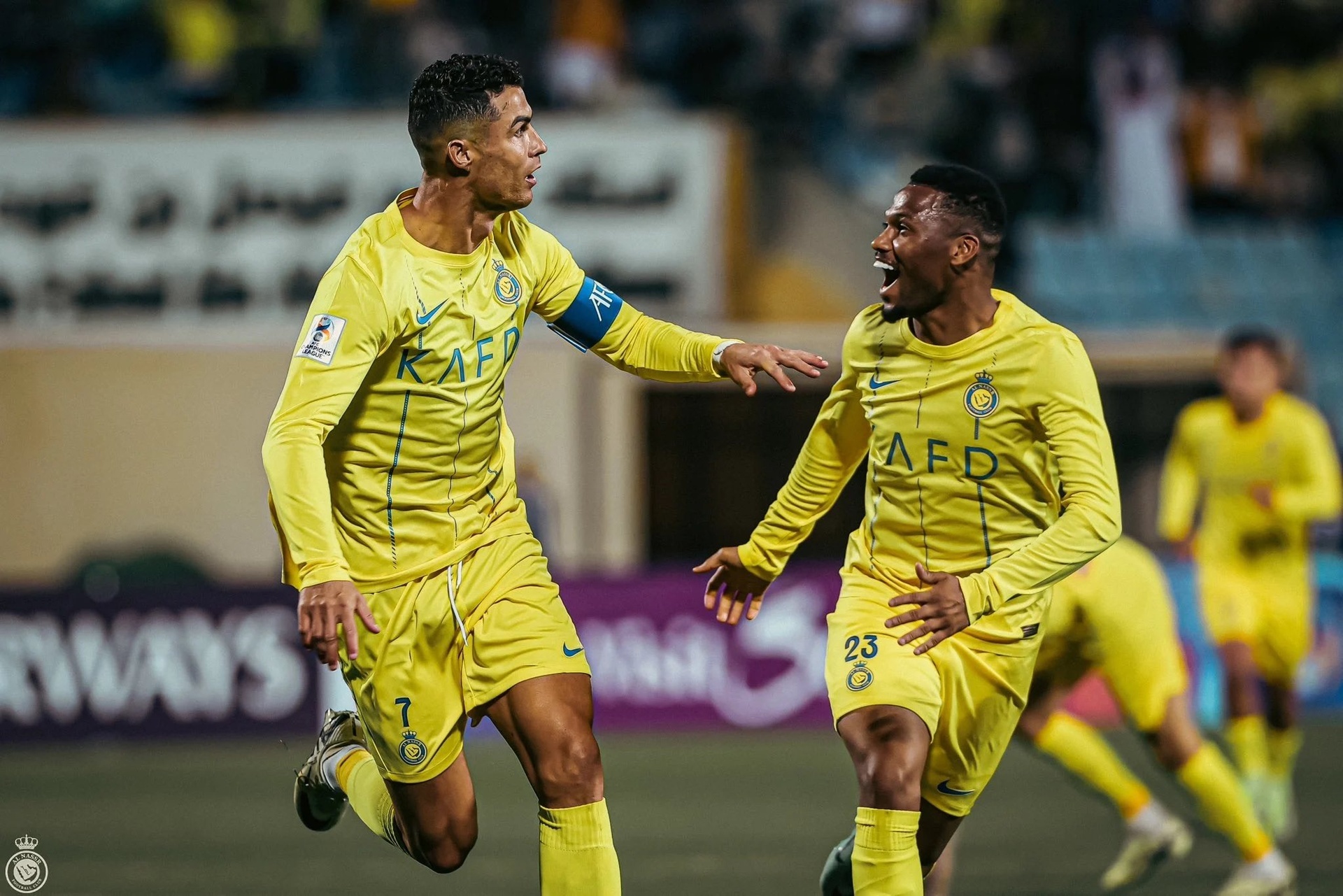Ronaldo is not to blame for Saudi Arabia’s disappointing performance.
Saudi Arabia players lost 0-2 to Japan in the 2026 World Cup Asian qualifiers on October 11. Is this the fault of stars like Cristiano Ronaldo?
| Cristiano Ronaldo is playing in Saudi Arabia for Al Nassr. |
So far, Saudi Arabia has only 4 points after 3 matches and dropped to 3rd place in the qualifying round. The competition for a ticket to the 2026 World Cup final does not seem easy when coach Roberto Mancini’s team has to compete for 2nd place with Australia, while Bahrain (also with 4 points) and Indonesia (3 points) are still lurking below.
Mancini blames world stars
In previous years, the Asian qualifying round was very harsh with only 4 official tickets, but the Saudi Arabia team never felt pressured. Now, Asia has 8 direct tickets to the final round, but the West Asian giant feels stressed.
The situation seemed so tense that coach Mancini had to speak up and blame the stars who moved to the Saudi Pro League such as Cristiano Ronaldo and Karim Benzema.
At a press conference before the match against Japan, Mancini expressed his concern that the Saudi Pro League clubs were hindering the selection of talent for the national team by not giving local players enough playing time. The main point that disappointed Mancini was the large number of foreign players in the domestic league, which robbed young domestic players of opportunities.
 |
| Mancini must understand the situation clearly when signing a contract with the Saudi Arabian Football Federation. |
“Three years ago, Saudi Arabian players played every game. Today, 50% to 60% of them don’t play. This is the top problem, the only problem we have with this tournament,” Mancini compared.
A few weeks ago, the former Italy captain also lamented: “My players need to play. I have too many players on the bench at the club.”
Mr. Mancini’s complaint has two sides. But one thing must be affirmed: before coming to Saudi Arabia to lead the team, the Italian coach must clearly understand the characteristics of the national championship here.
Before Mancini arrived, the Saudi Pro League allowed each club to register 8 foreign players. Four months after the Euro 2020 champions arrived, the Saudi Pro League adjusted to allow each club to register 10 foreign players. This is part of the 2030 vision strategy, making the Saudi Pro League a world-class tournament.
Mr Mancini is smart enough to understand the Saudis’ process and vision. So the excuses he makes are not satisfactory.
The pros outweigh the cons.
In terms of the benefits of the foreign player expansion policy, not only does the Saudi Pro League attract many star players and media attention, but it also gives local players more opportunities to learn from famous players both in matches and in club training sessions.
On the downside – as Mancini said, local players will have less opportunities to play. However, using adverse consequences to justify poor results is not a good idea.
Take Japan as an example. The contrast between Japan and Saudi Arabia is that East Asian players do not have much opportunity to rub shoulders with international stars in the J.League. Therefore, Japanese players have to travel all over Europe to compete and learn. Because they try to get into big clubs with star players, they do not get to play regularly.
Japan captain Wataru Endo is a case in point. The midfielder played the full 90 minutes in Japan’s 2-0 win over Saudi Arabia, but has only played two minutes of the 2024/25 Premier League season, coming on as a substitute for Liverpool.
| Ayman Yahya learned a lot from playing alongside Ronaldo. |
Or Daichi Kamada, who scored the opening goal against Saudi Arabia, is not a mainstay of Crystal Palace. Since the beginning of the season, Kamada has only started 4 out of 7 matches in the Premier League and has been substituted 3 times.
Japanese players come from many different European football backgrounds with different styles and philosophies, but when they come together in the national team, they become a smooth and effective unit. If the J.League could build a competitive football environment full of stars, inspired by Ronaldo, Benzema and other top stars, Japanese players would not need to rush to “study abroad” so much.
Mr. Mancini has more favorable conditions than his colleague Hajime Moriyasu when he can have all the information about the Saudi Arabian players in hand, and can go to the stadium to watch any player he wants. The Saudi Arabian players still play regularly in the domestic league, and are not locked on the bench all the time.
What Mr. Mancini needs to do is build a tactical plan that fits the cards he has in hand, not complain about things like: Why is the sea water salty?

